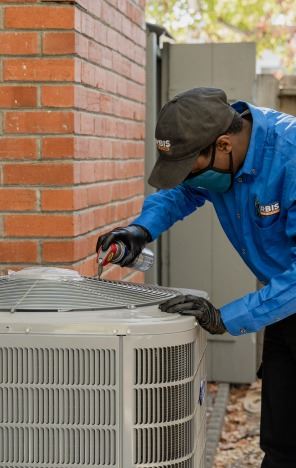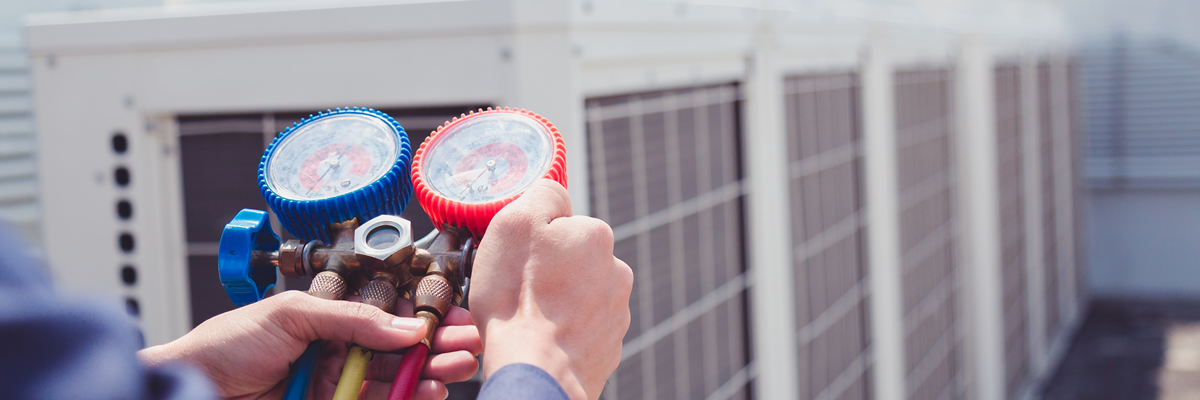Best Ways to Cut Costs on Your furnace replacement Project
Wiki Article
Picking In Between a Warm Pump and Heating System: Key Considerations for Your A/c Needs
When assessing home heating alternatives for a/c needs, the choice between a heat pump and a furnace can be complicated. Each system provides distinct advantages customized to particular climates and power effectiveness objectives. Understanding these differences is crucial for making an informed option. Key factors such as installation prices and environmental effect additionally make complex the option procedure. Which option genuinely straightens with one's convenience and sustainability choices? The complying with areas will certainly explore these factors to consider in information.Understanding Warmth Pumps: Exactly How They Function and Their Advantages
While many home owners take into consideration numerous home heating options, recognizing how heat pumps feature and their advantages can considerably affect their choice. Heat pumps operate by transferring warmth instead of producing it. In the winter, they draw out warm from the outdoors air or ground and move it indoors, while in the summer, they reverse this procedure, cooling down the home by removing warm outside. This double capability makes them versatile for year-round environment control.One of the primary benefits of heatpump is their power performance. They make use of significantly less electricity contrasted to conventional home heating systems, potentially resulting in reduced energy expenses (heat pump replacement ooltewah tn). Additionally, warmth pumps have a smaller carbon impact, making them an ecologically friendly choice. They likewise need less maintenance than conventional systems, adding to long-lasting price savings. Overall, recognizing the auto mechanics and benefits of heatpump can aid house owners make notified choices concerning their heating and cooling requirementsDiscovering Heaters: Kinds, Operation, and Benefits
Furnaces can be found in various types, including gas, electric, and oil versions, each with distinct operational systems. Understanding these distinctions is crucial, as they influence effectiveness and heating efficiency. In addition, furnaces use many advantages, such as consistent heat output and integrity in colder environments.Kinds of Heaters
Home heating systems can differ substantially in layout and operation, with heaters being a prominent choice among house owners. There are numerous kinds of heaters, each using different fuel resources and innovations. Gas heaters prevail, leveraging natural gas to create heat effectively. Electric heating systems, on the other hand, use electrical resistance to generate warmth, typically favored for their simple installment. Oil furnaces, while less typical, are reliable in locations with limited gas accessibility (heat pump replacement ooltewah tn). Additionally, condensing furnaces make the most of power efficiency by recycling and recording exhaust gases. Each kind runs via a system of warm exchangers and ductwork to disperse cozy air throughout a home. Understanding the distinctions in between these heater kinds is vital for notified cooling and heating decisionsBenefits of Heating systems
For home owners seeking trusted heat throughout chilly months, the benefits of furnaces are substantial. Furnaces offer constant heating, making sure even temperature levels throughout the home. They are particularly efficient in extreme cold, typically outmatching warm pumps in frigid problems. Various kinds, consisting of gas, electrical, and oil furnaces, supply versatility to satisfy diverse requirements and preferences.Furnaces additionally have a tendency to have lower first installation costs contrasted to heatpump, making them a more obtainable choice for lots of. Their robust style adds to a longer lifespan, with many devices lasting over 15 years with proper maintenance. Furthermore, modern heaters are often furnished with advanced technology for enhanced effectiveness, which can bring about decreased energy expenses. In general, heaters continue to be a trustworthy choice for efficient home heating.
Power Effectiveness: Comparing Warm Pumps and Furnaces
When contrasting energy effectiveness in between warm pumps and heating systems, the Seasonal Energy Performance Ratio (SEER) plays an important function in establishing efficiency. Additionally, an operational price analysis discloses the long-lasting economic implications of each system. Recognizing these factors can direct homeowners in making notified choices about their home heating remedies.Seasonal Power Effectiveness Proportion
Energy effectiveness plays a vital function in the decision-making procedure between warm pumps and heating systems, specifically when taking into consideration the Seasonal Power Effectiveness Proportion (SEER) This metric steps the cooling effectiveness of heatpump over an entire cooling period, providing a standardized method to evaluate performance. Greater SEER ratings show better energy effectiveness, equating to lower energy intake and reduced utility costs. In comparison, heating systems are usually examined using the Yearly Gas Use Performance (AFUE) ranking, which shows home heating effectiveness. When contrasting these 2 systems, property owners ought to prioritize SEER scores for warmth pumps, as they directly impact total power cost savings and ecological sustainability. A comprehensive understanding of SEER can especially affect the lasting complete satisfaction and cost-effectiveness of the picked cooling and heating service.Operational Expense Analysis
Recognizing the operational straight from the source expenses connected with heatpump and furnaces is essential for house owners assessing their choices. Heat pumps generally use higher power effectiveness, transforming electric power right into warm with marginal waste. This causes reduced regular monthly energy bills, specifically in moderate environments. Conversely, conventional heating systems, specifically gas versions, may have lower upfront costs but can incur higher functional costs with time due to sustain prices and efficiency ratings.Moreover, warm pumps can function as both home heating and cooling systems, possibly decreasing the requirement for different cooling and heating systems. While preliminary investments for heatpump might be greater, their lasting savings in power effectiveness can make them a much more affordable selection for numerous houses. Cautious analysis of local energy prices is important to identify the ideal alternative.Installment Expenses: What to Expect for each and every Furnace
Installation prices for furnace can differ significantly in between warmth pumps and furnaces, influencing home owners' decisions. Warmth pumps usually have greater in advance installment prices, typically ranging from $3,500 to $8,000, depending upon the system dimension and intricacy of installment. This includes he said the outside unit, interior handling system, and required ductwork modifications. Conversely, heaters often tend to have reduced preliminary expenses, averaging in between $2,500 and $6,000, which can be appealing for budget-conscious house owners. Setup expenditures can increase if extensive ductwork is required.Moreover, the selection of gas type for heating systems-- natural gas, gas, or electric-- can also impact installation expenses. While heatpump use power effectiveness, their preliminary investment may deter some customers. Eventually, evaluating installation prices along with lasting financial savings and efficiency will certainly help house owners in making informed decisions regarding their home heating systems.Environment Considerations: Which System Carries Out Better in Your Location
Exactly how do environment problems affect the efficiency of furnace? The efficiency of heat pumps and furnaces can vary substantially relying on the local environment. In modest climates, heatpump excel by effectively transferring warm from the outside air, making them an energy-saving option. Nevertheless, their effectiveness diminishes in incredibly cold temperature levels, where they may have a hard time to remove sufficient heat. Conversely, heating systems, specifically gas models, offer consistent and dependable warmth no matter outdoor conditions, making them better in cooler regions.In areas that experience milder wintertimes, heat pumps can run successfully year-round, providing both home heating and air conditioning. In contrast, areas with harsh winter seasons commonly profit from the toughness of heaters. Eventually, understanding the local climate is crucial when choosing in between a heatpump and a furnace, as it straight impacts their operational performance and total efficiency.Upkeep Demands: Long-Term Treatment for Warmth Pumps vs. Furnaces
While both heatpump and furnaces need regular maintenance to assure peak performance, their details requirements and care routines differ significantly. Heaters typically need less frequent attention, with annual assessments sufficing to look for gas leakages, clean filters, and evaluate general capability. Their less complex style often enables straightforward repairs.In contrast, heatpump demand semiannual upkeep because of their double function in heating & cooling. This includes cleansing coils, inspecting refrigerant degrees, and guaranteeing that both the indoor and outdoor units work at their best. Furthermore, heatpump maintenance typically entails even more elaborate components, making professional servicing essential.Neglecting maintenance can cause decreased effectiveness and raised energy expenses for both systems. Eventually, home owners should consider these long-term care requirements when picking between a warm pump and a furnace, as positive maintenance can expand the lifespan and efficiency of either system substantially.Ecological Effect: Picking a Lasting Heating Choice
The environmental influence of home heating systems is a vital examination for homeowners looking for sustainable alternatives. Heatpump are typically a lot more energy-efficient than standard heaters, as they transfer warm instead than produce it, greatly decreasing carbon emissions. By making use of renewable resource resources, such as geothermal or air-source heatpump, property owners can better reduce their eco-friendly footprint.On the various other hand, natural gas furnaces emit greenhouse gases and add to air contamination, though they commonly offer higher heat output. Improvements in technology have actually led to the growth of high-efficiency heaters that reduce emissions.Ultimately, choosing a home heating system involves evaluating performance against environmental influence. House owners are urged to mirror on local energy sources and incentives for eco-friendly systems, guaranteeing a selection that aligns with both individual convenience and ecological responsibility. The choice affects not only prompt comfort but likewise long-term sustainability and ecological health and wellness.Regularly Asked Questions
How Lengthy Do Warm Pumps and Furnaces Usually Last?
The life-span of heat pumps normally ranges from 15 to two decades, while heaters can last in between 15 to thirty years. Normal maintenance considerably influences their long life and efficiency in look at this website supplying home heating services.Can I Use a Heat Pump in Extremely Cold Climates?
Heatpump can operate in extremely chilly climates, however their efficiency reduces as temperatures decline. In such conditions, additional home heating sources may be necessary to keep comfortable indoor temperatures and ensure peak efficiency.
What Is the Noise Degree of Heat Pumps Versus Furnaces?
The sound levels of heatpump and heaters differ considerably. Generally, heatpump run more quietly than standard heating systems, making them preferable for those conscious appear, while heating systems may produce louder operational noises throughout heating cycles.
Are Heat Pumps Suitable for Both Cooling And Heating?
Heatpump are indeed appropriate for both home heating and cooling (heat pump service). They work by transferring warmth, providing reliable temperature level control year-round, making them a functional selection for house owners seeking an all-in-one cooling and heating solutionWhat Size Heater Do I Required for My Home?
Establishing the suitable size heater for a home requires assessing elements such as square video footage, insulation quality, neighborhood climate, and the home's format. Consulting a professional can assure a precise evaluation and suitable convenience. Warmth pumps normally offer greater power efficiency, converting electric power right into warmth with marginal waste. In modest climates, warm pumps stand out by successfully moving heat from the outdoors air, making them an energy-saving alternative. Alternatively, furnaces, particularly gas models, offer reputable and consistent warmth regardless of exterior problems, making them more suitable in colder regions.In locations that experience milder winters months, warm pumps can operate properly year-round, offering both heating and air conditioning. Warmth pumps are generally much more energy-efficient than traditional furnaces, as they move warmth rather than create it, greatly lowering carbon discharges. By utilizing eco-friendly energy sources, such as geothermal or air-source heat pumps, homeowners can additionally minimize their environmental footprint.On the various other hand, all-natural gas heating systems send out greenhouse gases and contribute to air pollution, though they usually give greater heat result.Report this wiki page